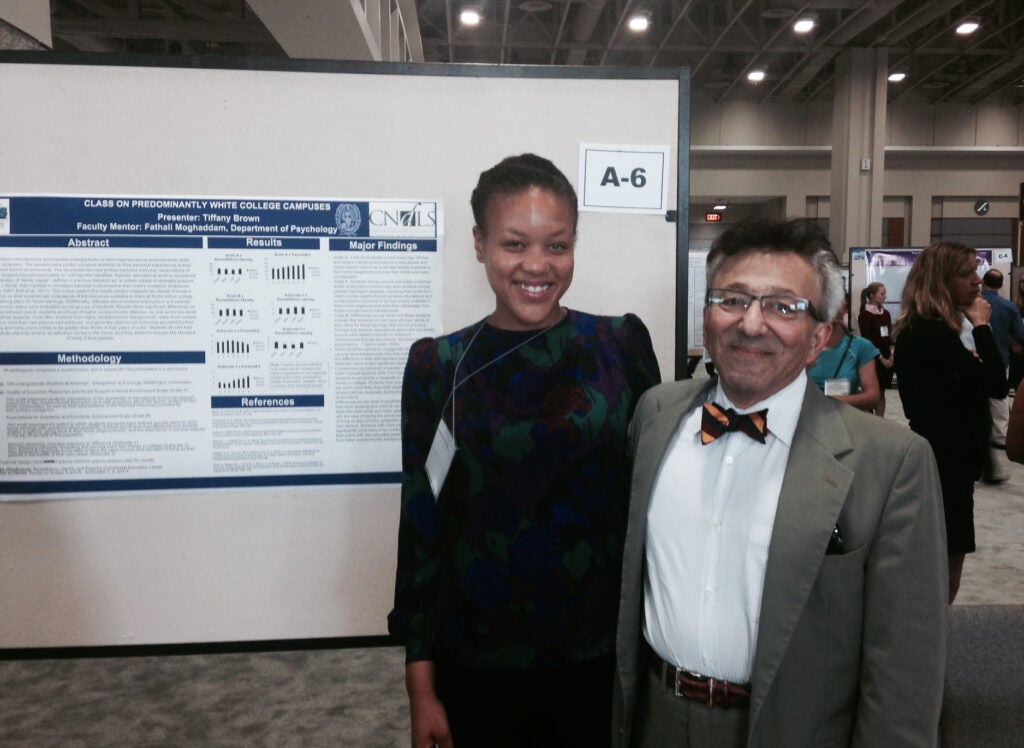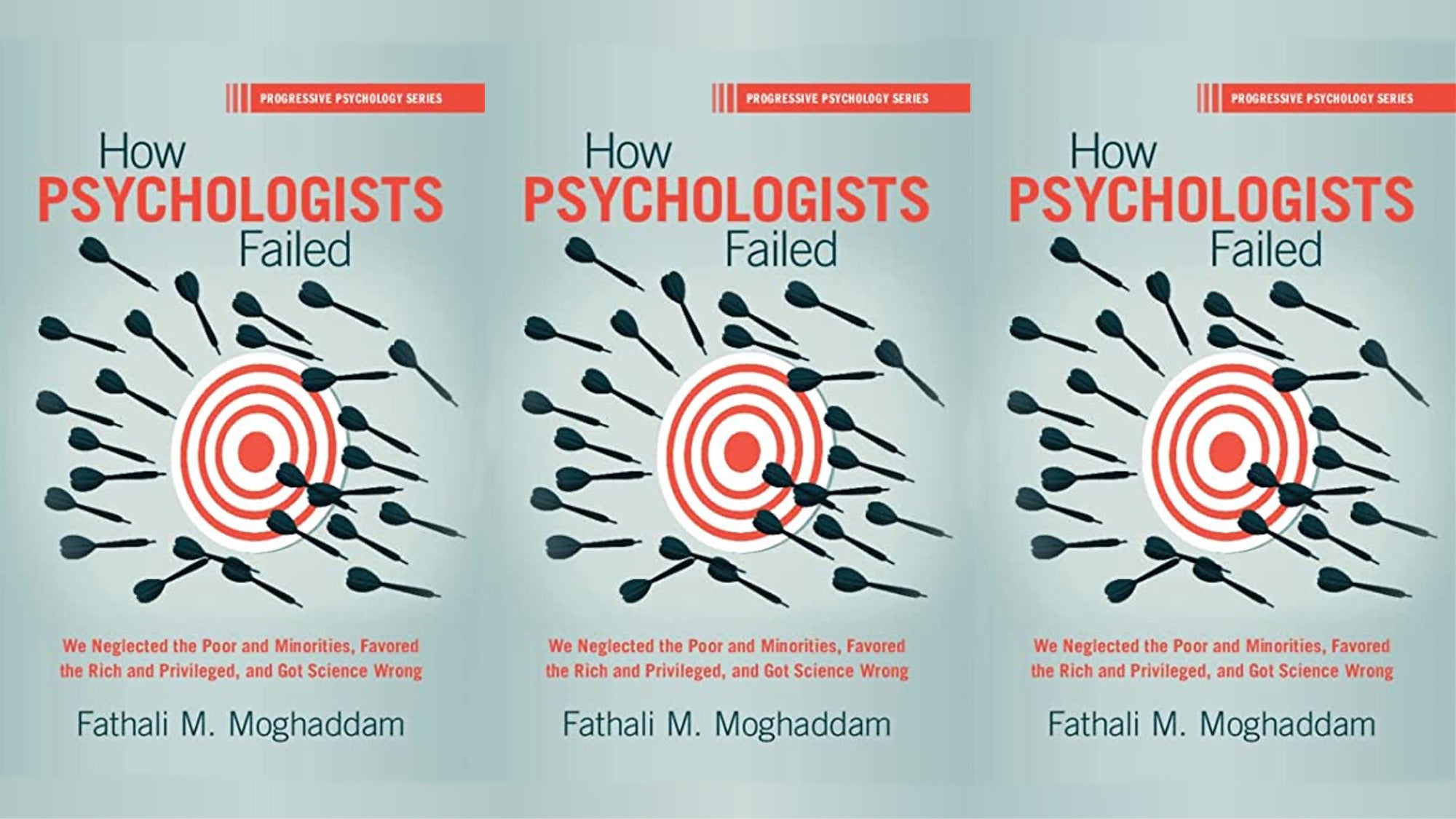New Book Series Emphasizes the Role of Class and Poverty in Psychology
Fathali Moghaddam wants the field of psychology to be more progressive.
That change starts in the classroom by emphasizing the ways in which social conditions, such as poverty and inequality, influence and affect the mind. As the editor of a new Cambridge University Press book series, Progressive Psychology, Moghaddam hopes to equip instructors and practitioners with the tools to modernize the field.
“For too long, psychologists ignored the poor, ignored minorities and gave preference to the rich,” Moghaddam, a professor in the Department of Psychology, explains. “As psychologists, to some extent, we have failed to account for how these factors have affected our traditional assessments. Pioneering research is showing that poverty has an important influence on cognition and action.”
Moghaddam penned the aptly-titled first volume in the series, How Psychologists Failed, which parallels a standard introductory textbook in its structure, but introduces research on the impacts of poverty and social class alongside the standard PSYCH-101 curriculum.
“The goal of How Psychologists Failed is to present an outline of how poverty matters and why it should be a bigger topic within psychology courses and research,” Moghaddam says.
The prolific author is quick to stress that a courageous group of researchers is blazing a new path on poverty research, and is beginning to receive recognition.
“We are building a wealth of psychological research that focuses on the impacts of poverty on cognition, on problem-solving and on cognitive tests,” Moghaddam says. “This book brings that information to the forefront, encouraging classrooms to discuss justice and poverty.”
Psychological Tools for Educators

Tiffany Brown (left) at her first poster presentation on the research Fathali Moghaddam (right) supervised at the American Psychological Association conference in 2014.
After releasing How Psychologists Failed, Moghaddam’s series will publish volumes from other experts in the field, including Cultural Learning in Urban Schools and Minority Serving Institutions, A Guide for Educators by Tiffany Brown (SFS’14). Brown, an assistant professor at the University of Connecticut Neag School of Education, is excited by the overlap between her research and the Progressive Psychology series.
“There is a natural fit between the overarching themes in this series and my research,” says Brown. “My volume focuses on how K-16 teachers learn about their students’ cultures when working in diverse schools.”
For Brown, educators, administrators and policymakers need to acknowledge how their professional experiences are influenced by the fact that the stratum of decision-makers in America’s education system is largely white, but the student body is ever-diversifying.
“My book is about how to develop more constructive relationships between educators and their students in diverse schools, colleges and universities,” Brown says. “Its purpose is to address the psychological consequences of the cultural mismatch for educators who are learning in real-time – often on their own – about how to better serve the unique needs of students from low-income and other minoritized cultural communities.”
As a Georgetown alumna who went on to earn degrees at Columbia and Harvard Universities, Brown has been excited to reconnect with Moghaddam. A Culture and Politics major in the School of Foreign Service, Brown recalls abruptly entering Moghaddam’s office to propose integrating psychological research into her studies. She found him watering plants and not at all perplexed by her unannounced entry.
“He guided me towards taking the psychology core curriculum classes while completing my CULP coursework and supported my research development in the honors psychology program,” Brown says. “He was more than an early investor for me, he was an early believer – which means so much more to me in a way because he saw what I didn’t know was in me back then.”
How Psychologists Failed is out November 3 from Cambridge University Press.
-by Hayden Frye (CAS’17)
- Tagged
- Books
- Faculty
- Psychology
